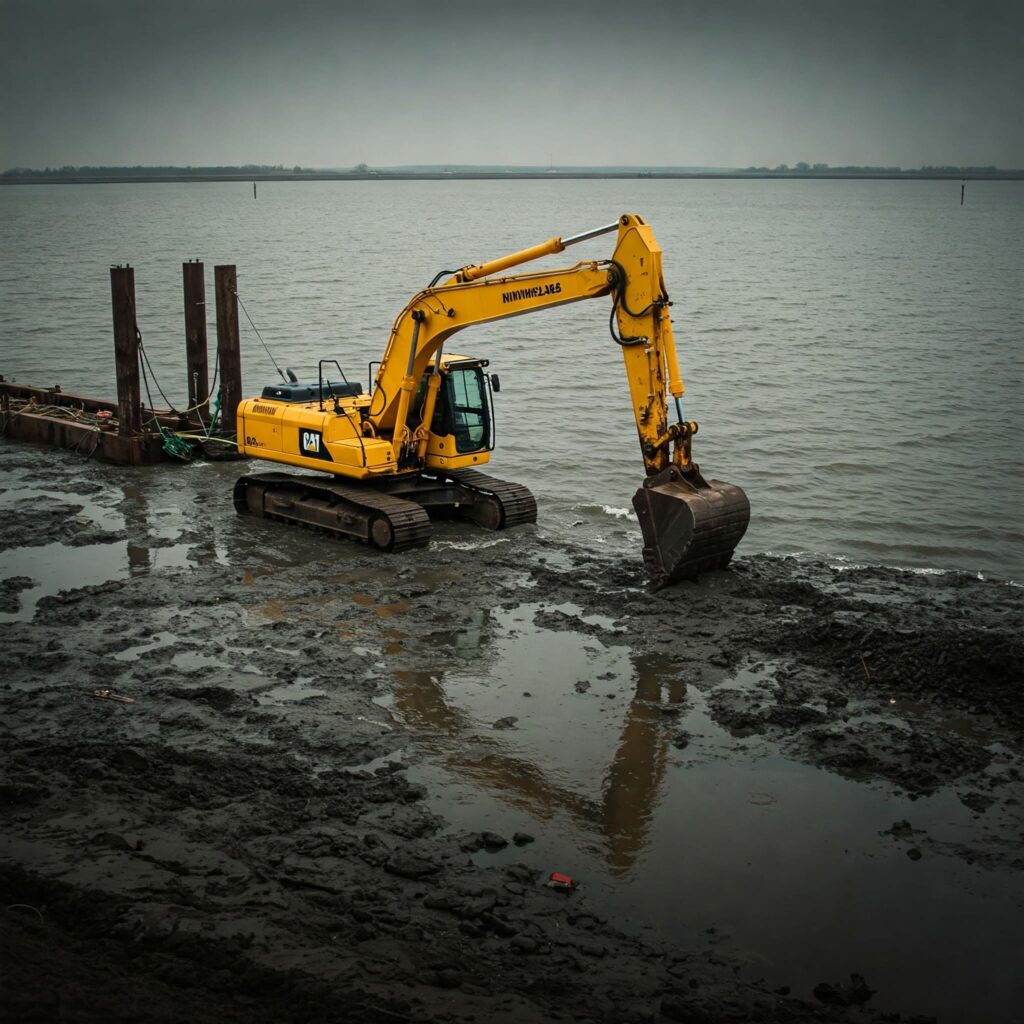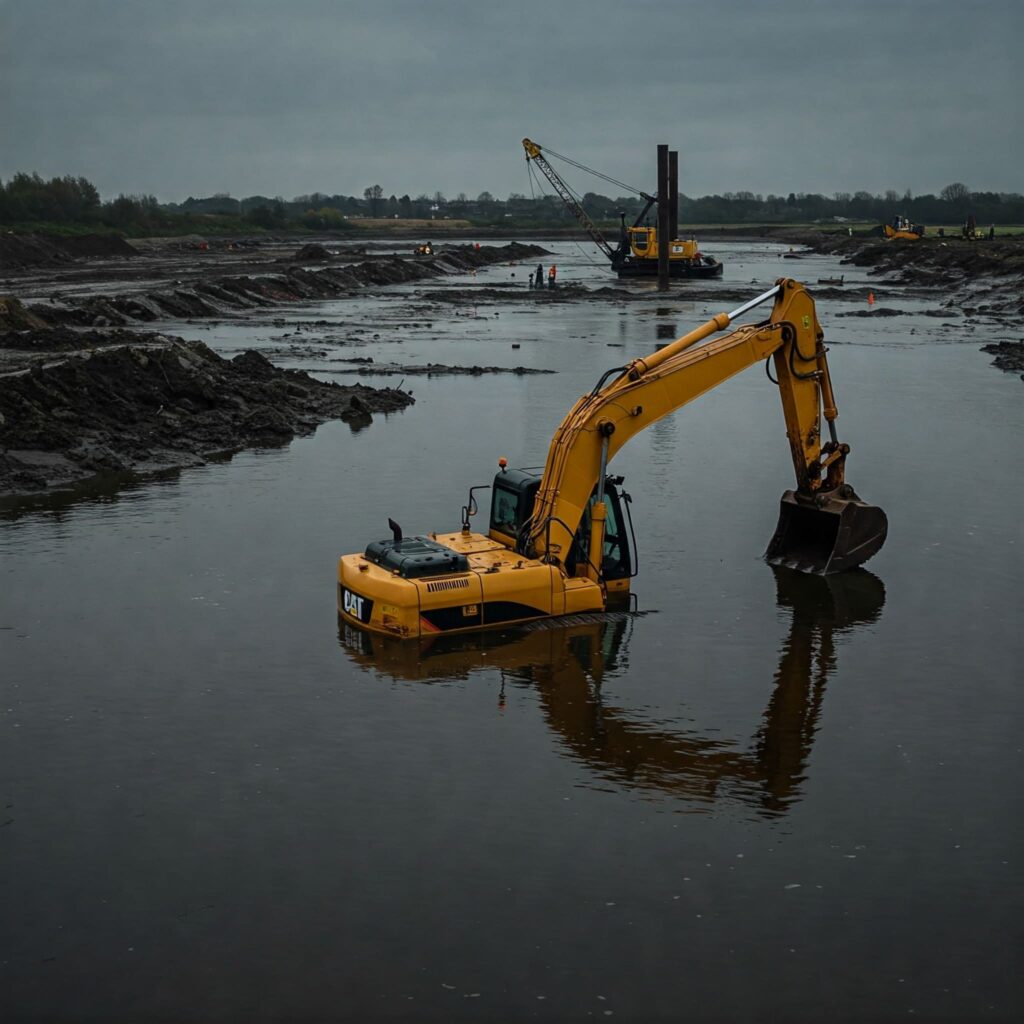When maintaining your equipment in wet environments, choosing the correct grease can make all the difference. Whether facing rain, mud, or snow, understanding the differences between synthetic grease and lithium grease is essential. Each type has specific advantages, and knowing how they perform under water exposure can help you select the most suitable option for your needs.
Synthetic Grease Characteristics
Synthetic water-resistant grease, including options like AMSOIL 100% Synthetic Water-Resistant Grease, offers reliable protection in challenging conditions. Formulated with synthetic base oils and fortified with calcium-sulfonate thickening agents, synthetic greases are engineered to resist water washout while preventing corrosion. They cling to metal surfaces, creating a durable barrier that shields against moisture damage.
For example, AMSOIL 100% Synthetic Water-Resistant Grease has a water washout rating of 1.25% (ASTM D1264,) making it highly effective under continuous exposure to water. In comparison, conventional lithium grease often scores between 5% and 15% on the same test, indicating lower resistance to washout.
Synthetic waterproof grease not only protects against moisture but also withstands intense pressure and temperature extremes. This makes it ideal for applications such as water-resistant wheel bearing grease or waterproof grease for bearings in ATVs, UTVs, snowmobiles, and boat trailers.
Lithium Grease Characteristics
Lithium grease, like Valvoline Multipurpose Lithium Grease, is another versatile option known for water resistance and strong load-carrying capability. It works well in wet conditions but may struggle with long-term water exposure or heavy corrosion. While it offers solid performance, especially for general-purpose use, it may wear out faster than synthetic options when exposed to high levels of moisture or severe environments.
Is lithium grease waterproof? To a degree, yes. However, it might not perform as effectively as synthetic water-resistant grease under continuous water contact or extreme conditions.

Performance in Wet Environments
When comparing synthetic grease and lithium grease in wet applications, synthetic products typically provide better protection. They form stronger bonds with metal surfaces, preventing water penetration and rust formation. This ability to repel water is especially important for equipment exposed to constant splashing or full submersion.
Lithium grease is reliable in moderate wet conditions, but its performance may diminish over time in high-moisture settings. If you’re handling equipment that deals with regular water exposure, synthetic waterproof grease often delivers superior durability.
Key Advantages of Synthetic Grease
- Corrosion Protection: Synthetic greases like AMSOIL waterproof grease combat rust effectively, even in submerged conditions.
- Water Resistance: With a low washout rate, synthetic grease resists being stripped away by water or spray.
- High Load Performance: These greases are fortified to handle extreme pressure, protecting against metal wear.
Application and Best Practices
Choosing the best waterproof grease involves matching the product to your equipment’s needs. For most wet applications, synthetic water-resistant grease offers the highest level of performance. Products meeting NLGI GC-LB standards, such as AMSOIL 100% Synthetic Water-Resistant Grease, are suitable for wheel bearings and chassis lubrication.
Proper application is just as critical as the grease type. Clean your equipment regularly and apply the grease as directed. Synthetic grease is efficient, so small amounts can provide ample protection. Ensure you stay on top of maintenance schedules to maximize the lifespan of your machinery.
Learn how to keep lubricants safe from water exposure and enhance performance in wet conditions. Click here to read the full article on Machine Design.

Final Thoughts
When selecting between synthetic grease and lithium grease for wet environments, the right choice depends on your specific needs. For heavy water exposure or long-term durability, synthetic water-resistant grease like AMSOIL provides outstanding protection. On the other hand, lithium grease remains a solid option for less demanding conditions requiring a general-purpose waterproof grease for bearings. Both types have their place, but for tackling the harshest wet conditions, synthetic waterproof grease often comes out on top. By understanding the strengths of each, you can make informed decisions to protect your equipment and keep it performing efficiently over time. For more details on high-performance motor oils, explore AMSOIL 100% Synthetic Water-Resistant Grease here, and Valvoline here.
